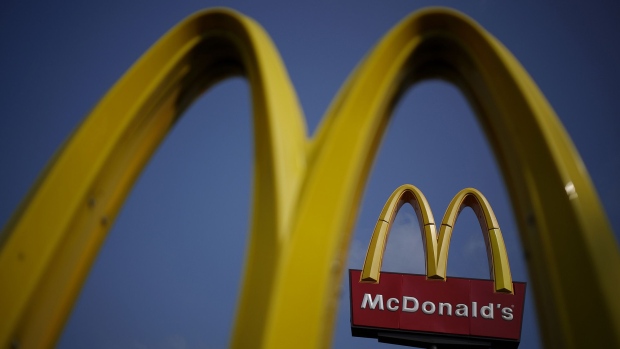Jun 3, 2022
McDonald’s Seeks Assessment on Race After Shareholder Vote
, Bloomberg News

(Bloomberg) -- McDonald’s Corp., whose investors last week approved a shareholder resolution calling for an independent civil-rights audit of the fast-food giant, said it has engaged an outside firm to take a step toward such an effort.
“We are committed to providing equitable opportunities for our employees, franchisees, and suppliers,” the company said in an emailed statement Thursday. “While we are proud of our progress, our efforts are ongoing, and we will continue to focus on actions that have meaningful impact. Consistent with these efforts, we have engaged a third party to conduct an assessment.”
It wasn’t clear if the assessment would lead to the full-scale audit that shareholders backed with 55% of the final vote at last week’s annual meeting. In an audit, the Chicago-based company likely would have to gather details and data from its franchised locations, along with customers and suppliers, to measure if and how their practices may be contributing to social and racial inequities.
About 95% of McDonald’s locations are franchised and employ their own staff, which means they make individual decisions on hiring and pay.
A wave of companies are facing investor pressure on environmental, social and governance issues. Lowe’s Cos. said in a filing Thursday that its shareholders voted in favor of a proposal calling for a report on racial and gender wage gaps within the chain, after Home Depot Inc. shareholders previously backed a racial-equity audit. Like McDonald’s board, directors at the home-improvement companies had recommended votes against the proposals.
Lowe’s board will take shareholders’ votes “into consideration and will determine the appropriate action,” a company spokesperson said via email Friday.
Other Lowe’s ESG measures that failed to pass called for a report on the risks of state policies restricting reproductive health care, and a civil-rights and nondiscrimination audit and report.
Read more: What civil rights audits are and why firms do them
People of color represent 32% of Lowe’s workforce and 24% of its leadership roles, according to the Mooresville, North Carolina-based company’s proxy statement. Women make up 39% of the employee base and 30% of leadership positions.
Currently, more than 20% of the 100 biggest US employers disclose adjusted pay gaps, and companies are also increasingly reporting unadjusted gaps, the resolution said.
The Wall Street Journal reported earlier Thursday on McDonald’s planned third-party assessment.
(Updates with Lowe’s statement in sixth paragraph.)
©2022 Bloomberg L.P.


